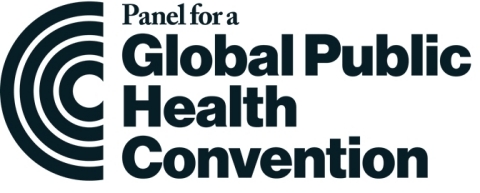Global Public Health Convention Study in The Lancet Redefines the Future of Pandemics, says GPHC Panel
Global Public Health Convention Study in The Lancet Redefines the Future of Pandemics, says GPHC Panel
LONDON & MIAMI--(BUSINESS WIRE)--The Panel for a Global Public Health Convention (GPHC) announces today the publication of a research study titled “Global Public Health Convention for the 21st Century” in the prestigious Lancet Public Health journal. The paper outlines 10 recommendations on how the world can better prevent and prepare for pandemics like COVID-19 by adopting a robust global public health convention or treaty.
The pioneering study was conducted by a research team at the University of Miami (UM), Department of Public Health Science under the leadership of Prof. José Szapocznik Ph.D. The team compiled the recommendations after gathering and analyzing input from 29 thought leaders in a diverse range of disciplines, including public health, public policy, medicine, diplomacy, and economics. The study received financial support from the AIDS Healthcare Foundation (AHF) and was conducted in collaboration with the AHF Public Health Institute at the University of Miami.
The full text of the study is available from The Lancet Public Health journal here and via the GPHC Panel website at www.gphcpanel.org.
“The recommendations in the study published today in the Lancet are central to our efforts to bring about a much-needed paradigm shift in the global public health architecture in the wake of COVID-19,” said Dame Barbara Stocking, Chair of the Panel for a Global Public Health Convention and President of Murray Edwards College, University of Cambridge. “We are grateful to the experts who shared their knowledge and experience and to the University of Miami team who devised and conducted the study. Now, we must ensure these recommendations reach high-level decision makers and lay the groundwork for a new legally binding public health treaty or convention.”
“Ending the COVID-19 pandemic, and ensuring a robust response for the next pandemic, requires global solidarity and binding international obligations,” said Lawrence O. Gostin, a member of the Panel for a Global Public Health Convention, who directs the O’Neill Institute for National and Global Health Law, Georgetown University. “Most of the world failed to contain COVID-19, and governments systematically violated WHO’s International Health Regulations. We can do better through a binding international treaty on pandemic preparedness and response.”
The publication of the study is particularly timely considering the devastating impact of COVID-19 on health, the economy, and wellbeing of people everywhere.
“With the publication of the ‘Global Public Health Convention for the 21st Century’ in the Lancet, we hope to make a valuable contribution to the dialogue around what the future of public health should look like,” said Prof. Szapocznik. “For the benefit of all people globally, a change in governance of pandemics is required. To ensure that pandemics are prevented in the future, we must have the systems in place to effectively prevent, prepare and respond to infectious disease outbreaks and public health emergencies. There are several proposals that are likely to be brought to the World Health Assembly to establish a new treaty on pandemics. However, for a treaty to be effective, we believe that there is need for some form of inspection function and the ability to require governments to take action, and this itself may require incentives, disincentives and possibly sanctions. Ultimately, our goal is to ensure the world learns from the painful lessons of this pandemic so that we are better prepared to protect global health against future outbreaks.”
The Panel for a Global Public Health Convention (GPHC) is an independent coalition of global leaders working to strengthen the world’s ability to prevent, prepare, and respond to infectious disease outbreaks before they become widespread pandemics. The Panel was founded in 2020 in response to the emergence of the COVID-19 pandemic with the aim of bridging critical gaps in the global public health architecture and policy frameworks by promulgating a new global public health treaty or convention in an effort to ensure another pandemic of such magnitude does not happen again.
Contacts
US MEDIA CONTACT:
Denys Nazarov
GPHC Communications Advisor
+1 202 503 4743
denys.nazarov@ahf.org
